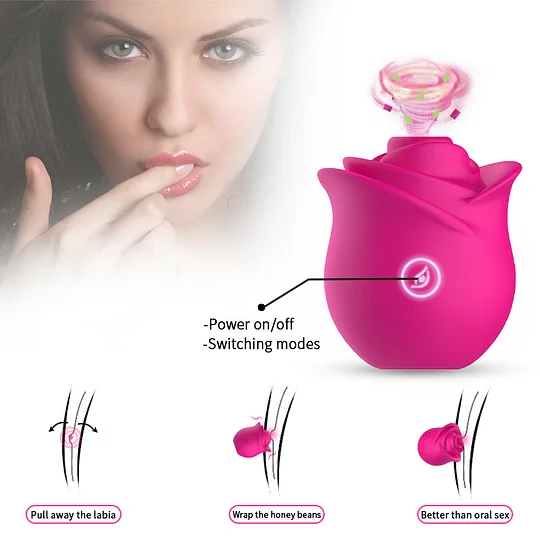Eco-Friendly Practices in Rose Toy Manufacturing

In today's world, where environmental consciousness is at the forefront of consumer concerns, businesses across industries are increasingly turning to eco-friendly practices to meet consumer demands and reduce their environmental impact. One such industry that has been undergoing a transformation towards sustainability is toy manufacturing. In this article, we delve into the innovative eco-friendly practices adopted by leading rose toy manufacturers to create toys that are not only safe for children but also gentle on the environment.
Understanding the Need for Eco-Friendly Toy Manufacturing
Traditional toy manufacturing processes often involve the use of non-biodegradable plastics and harmful chemicals, posing a threat to the environment and human health. As awareness about environmental issues continues to grow, consumers are becoming more discerning about the products they purchase, favoring those that are made sustainably and ethically.
Materials Innovation: Transitioning from Plastics to Sustainable Alternatives
One of the key initiatives taken by rose toy manufacturers is the transition from traditional plastics to sustainable alternatives. Instead of relying on petroleum-based plastics, which contribute to pollution and greenhouse gas emissions, these manufacturers are turning to biodegradable and renewable materials such as bioplastics derived from plant-based sources like corn starch or sugarcane.
Bioplastics: A Sustainable Solution
Bioplastics offer a promising alternative to conventional plastics as they are derived from renewable resources and can biodegrade under the right conditions, reducing their environmental impact. Additionally, bioplastics are often BPA-free, eliminating harmful chemicals that can leach into the environment and pose health risks.
Recycled Materials: Closing the Loop
In addition to utilizing bioplastics, rose toy manufacturers are incorporating recycled materials into their production processes. By the rose adult toy as cardboard, paper, and metal, these manufacturers are reducing the demand for virgin resources and minimizing waste. This not only conserves natural resources but also helps to divert waste from landfills, contributing to a circular economy.
Sustainable Design and Production Practices
Apart from materials innovation, rose toy manufacturers are embracing sustainable design and production practices to minimize their environmental footprint throughout the entire lifecycle of their products.
Design for Disassembly

Designing toys for disassembly allows for easy separation of components at the end of their lifespan, facilitating recycling or composting. By designing toys with modular components that can be easily separated and recycled, manufacturers are promoting circularity and reducing waste.
Energy-Efficient Manufacturing Processes
To further reduce their environmental impact, rose toy manufacturers are adopting energy-efficient manufacturing processes powered by renewable energy sources such as solar or wind. By minimizing energy consumption and utilizing clean energy alternatives, these manufacturers are lowering their carbon emissions and mitigating climate change.
Certifications and Standards: Ensuring Environmental Compliance
In addition to implementing eco-friendly practices, rose toy manufacturers are obtaining certifications and adhering to stringent environmental standards to demonstrate their commitment to sustainability.
Forest Stewardship Council (FSC) Certification
The Forest Stewardship Council (FSC) certification ensures that wood used in toy manufacturing is sourced from responsibly managed forests that promote biodiversity, protect wildlife habitats, and respect indigenous rights. By sourcing wood from FSC-certified forests, rose toy manufacturers are supporting sustainable forestry practices and safeguarding the world's forests for future generations.
Global Organic Textile Standard (GOTS) Certification
For toys made from textiles, such as plush toys or fabric dolls, rose toy manufacturers are obtaining the Global Organic Textile Standard (GOTS) certification. This certification guarantees that textiles are made from organic fibers, free from harmful chemicals, and produced in compliance with strict environmental and social criteria.
Consumer Education and Awareness
In addition to implementing eco-friendly practices internally, rose toy manufacturers are actively engaging with consumers to raise awareness about the importance of sustainable consumption and the environmental benefits of eco-friendly toys.
Educational Campaigns and Outreach
Through educational campaigns and outreach initiatives, rose toy manufacturers are informing consumers about the environmental impact of conventional toys and highlighting the benefits of eco-friendly alternatives. By empowering consumers with information, these manufacturers are encouraging conscious purchasing decisions that support sustainability.
Conclusion
As consumers increasingly prioritize sustainability in their purchasing decisions, rose toy manufacturers are leading the way in adopting eco-friendly practices to create toys that are safe for children and gentle on the environment. Through materials innovation, sustainable design, certifications, and consumer education, these manufacturers are demonstrating their commitment to environmental stewardship and shaping a more sustainable future for the toy industry.
